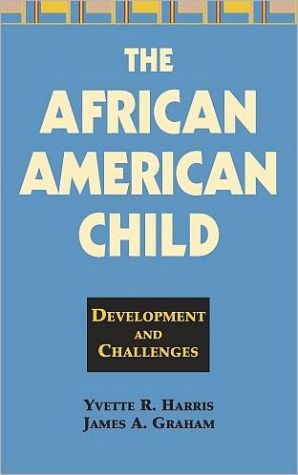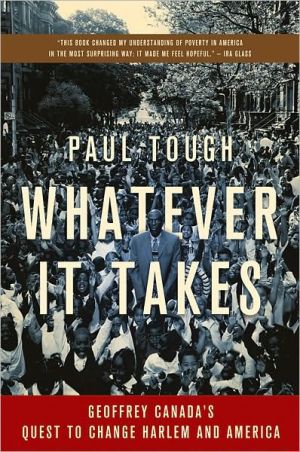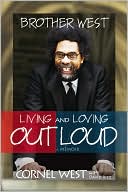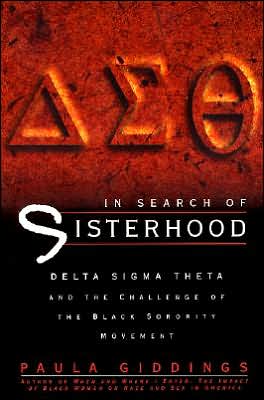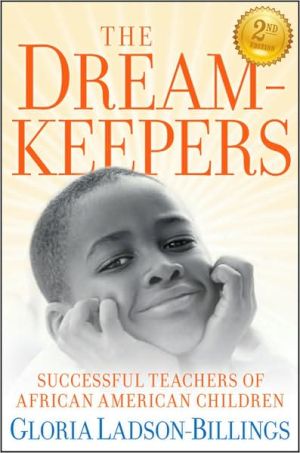The African American Child: Development and Challenges
"\ This book argues convincingly that children's cultural differences need to be recognized for any accurate understanding of their development. Pointing out the need for additional and more effectively designed research, Harris and Graham provide a valuable foundation for further investigations. This nonpolemic book should be in all libraries, filling an unfortunate gap. Highly recommended.--Choice: Current Reviews for Academic Libraries\ This major new textbook introduces students to issues...
Search in google:
"This book argues convincingly that children's cultural differences need to be recognized for any accurate understanding of their development. Pointing out the need for additional and more effectively designed research, Harris and Graham provide a valuable foundation for further investigations. This nonpolemic book should be in all libraries, filling an unfortunate gap. Highly recommended."--ChoiceThis major new textbook introduces students to issues that have an impact on the lives of African American children but have typically been ignored (or inadequately discussed) in mainstream child development textbooks. The authors hope to familiarize students with a sampling of research that moves beyond a deficit view of the development of the African American child while stimulating critical thinking about future directions for research on African American children and their families.The book is designed to be student friendly--with each chapter presenting an overview of the material covered as well as an "Insider's Voice" (which offers a personal story or viewpoint about the issues discussed in the chapter). Each chapter goes on to feature a dialogue of current biological, environmental, constructivist, and cultural-contextual theories) as well as suggestions for additional reading, videos, websites, and questions to guide critical thinking.Doody Review ServicesReviewer:Gary B Kaniuk, Psy.D.(Cermak Health Services)Description:This book describes issues that affect African American children, including historical, cultural, and social factors. The authors discuss both the difficulties faced by children of color and how they overcome them.Purpose:The authors had four goals: "First, we wanted to introduce students to issues that impact the lives of African American children that typically are not discussed in child development textbooks or are relegated to a paragraph in most developmental textbooks. Second, we wanted to present a balanced discussion of the challenges that impact the lives of African American children as well as emphasize their strengths and their resiliency. Third, we wanted to familiarize students with a sampling of research that moves beyond a deficit view of the development of African American children and takes into account the historical, cultural, and social factors that influence developmental outcomes for African American children. Fourth and perhaps most importantly, we wanted to stimulate critical thinking in social science students about future directions for research on African American children and their families.Audience:Their audience includes "social science students (developmental psychology, social work, sociology, Black World Studies) and other related disciplines (family sciences, education, and nursing) to African American child development." Dr. Harris, associate professor of psychology at Miami University of Ohio, has researched the environmental contributions to preschool and school age cognitive development for the last 17 years. Dr. Graham, associate professor of psychology at The College of New Jersey (TCNJ), is interested in the social-cognitive aspects of children's relationships.Features:The book covers issues such as demographics, health issues, mental health issues and racial identity, and moral development. Each chapter begins with an overview, continues with a personal story or a personal viewpoint about the topic, and concludes with a discussion of current perspectives on African American child development and additional readings. Figures and tables are wonderfully instructive and many chapters include boxes that highlight critical information. Assessment:This excellent book presents important topics, whetting the appetite to learn more. The authors address issues that readers may not want to hear but need to acknowledge in order to understand and intervene in an intelligent manner. This material will challenge beliefs and, hopefully, motivate readers to do something, both in terms of intervention and future research The book should be required reading for individuals working with African American children and their families (and students who will be).
PrefaceList of Figures and TablesDemographics: A Portrait of African American ChildrenOverview of the ChapterSection One: Population Statistics on African American ChildrenSection Two: Living Arrangements of African American ChildrenSection Three: Economic Conditions of African American Children and their FamiliesPerspectives on Demographics and African American Children Suggestions for Additional ReadingsResearch Issues with African American ChildrenOverview of the Chapter: The Importance of Studying Developmental Research MethodsInsider's Voice - The Need for More Research on African American ChildrenSection One: Problems: Methodological Constraints in Research DesignsInsider's Voice: Where Have We Gone Wrong?Section Two: Conducting Culturally Relevant Research with African American ChildrenThe Need for Culturally Sensitive Research with African American ChildrenConceptual Frameworks and InterdisciplinarityThe Role of Context in African American Child DevelopmentThe Relationship to African American Child Development and Central Characteristics in Developmental PsychologyEthical Considerations with African American Child ParticipantsSection Three: TheoriesVygotsky's Sociocultural TheoryBronfenbrenner's Bioecological Systems Theory Integrative Conceptual Model of Child DevelopmentPerspectives on Research and TheoriesChapter Summary Additional ReadingsAfrican American Children and Health Issues Overview of the Chapter Section One: Heath ChallengesInfant MortalityMaternal Risk FactorsInitiatives Designed to Reduce African American Infant Mortality RatesPhysical Challenges Beyond InfancyAIDSTreatment of AIDSInsider's Voice: PlumbismTreatment of PlumbismInsider's Voice-- Sickle Cell AnemiaTreatment of Sickle Cell AnemiaAsthmaTreatment of AsthmaObesityTreatment of ObesitySection Two: Access to Health CarePerspectives on the Health Status of African American ChildrenChapter SummaryKey TermsSuggestions for Additional ReadingsMental Health and Racial IdentityOverview of the ChapterSection One: Mental Health IssuesInsider's Voice - African American Children and Mental Health IssuesRisk FactorsAssessment and DiagnosisTreatment of Mental Health DisordersSection Two: Racial IdentityPerspectives on Mental Health and Racial IdentityChapter SummarySuggestions for Additional ReadingsEducationOverview of the ChapterSection One: School Desegregation and African American ChildrenInsider's Voice - Resegregation of American's Public SchoolsDesegregation and African American ChildrenSection Two: Schools That "Work" For African American ChildrenPublic Schools ModelsIndependent Black Schools (IBS)Section Three: African American Children and Early Intervention ProgramsHead Start High/Scope Perry Preschool Project Abecedarian ProjectPerspectives on Education and African American ChildrenChapter SummarySuggestions for Additional ReadingsLanguage and LiteracyOverview of the ChapterSection One: The ControversyInsider's Voice - The Oakland School Board Ebonics ResolutionSection Two: Language Learning and African American Children Section Three: Language and Literacy IssuesSection Four: Language and Literacy Intervention Programs for African American ChildrenSection Five: Language Assessment and African American Children: Distinguishing Dialect from a Speech Language DisorderPerspectives on Language Learning and Literacy and African American ChildrenChapter SummarySuggestions for Additional ReadingsMorality: The Good, the Bad, and the UglyOverview of the Chapter Insider's Voice: What if Heinz were Black?The Issues Section One: Theories of Moral DevelopmentPiaget's Theory Kohlberg's Theory: The Ethic of JusticeCriticisms of Piaget's and Kohlberg's TheoriesGilligan's Theory: The Ethic of CareGibb's Sociomoral Reasoning ModelHumphries' Culture and Empathy ModelTuriel's Domain Theory: Moral Rules and Social ConventionsSection Two: Prosocial Behavior and African American ChildrenPossible Factors Influencing Prosocial Behavior in African American ChildrenMorality and Racial Identity Development Section Three: Moral Development and Community ViolencePerspectives on African American Children and Moral DevelopmentChapter SummaryAdditional ReadingsSocial Contexts in the Lives of African American Children: Family, PeersOverview of the ChapterIssuesInsider's Voice - The Negro American FamilySection One: Models of the African American FamilyPathological ModelCultural Equivalent ModelEmergent ModelEcology Models of the FamilyGuiding Principles of Family Systems TheoryExternal Systems Affecting the FamilySection Two: African American Family Structure and Child DevelopmentNuclear FamilyAfrican American Single-Parent FamiliesAugmented FamiliesSection Three: The Peer GroupAfrican American Children's Peer RelationshipsAfrican American Children's FriendshipsPerspectives on African American Children and Social ContextsChapter SummaryAdditional ReadingsEpilogue: Where Do We Go From Here?
\ Reviewer: Gary B Kaniuk, Psy.D.(Cermak Health Services)\ Description: This book describes issues that affect African American children, including historical, cultural, and social factors. The authors discuss both the difficulties faced by children of color and how they overcome them.\ Purpose: The authors had four goals: "First, we wanted to introduce students to issues that impact the lives of African American children that typically are not discussed in child development textbooks or are relegated to a paragraph in most developmental textbooks. Second, we wanted to present a balanced discussion of the challenges that impact the lives of African American children as well as emphasize their strengths and their resiliency. Third, we wanted to familiarize students with a sampling of research that moves beyond a deficit view of the development of African American children and takes into account the historical, cultural, and social factors that influence developmental outcomes for African American children. Fourth and perhaps most importantly, we wanted to stimulate critical thinking in social science students about future directions for research on African American children and their families."\ Audience: Their audience includes "social science students (developmental psychology, social work, sociology, Black World Studies) and other related disciplines (family sciences, education, and nursing) to African American child development." Dr. Harris, associate professor of psychology at Miami University of Ohio, has researched the environmental contributions to preschool and school age cognitive development for the last 17 years. Dr. Graham, associate professor of psychology at The College of New Jersey (TCNJ), is interested in the social-cognitive aspects of children's relationships.\ Features: The book covers issues such as demographics, health issues, mental health issues and racial identity, and moral development. Each chapter begins with an overview, continues with a personal story or a personal viewpoint about the topic, and concludes with a discussion of current perspectives on African American child development and additional readings. Figures and tables are wonderfully instructive and many chapters include boxes that highlight critical information. \ Assessment: This excellent book presents important topics, whetting the appetite to learn more. The authors address issues that readers may not want to hear but need to acknowledge in order to understand and intervene in an intelligent manner. This material will challenge beliefs and, hopefully, motivate readers to do something, both in terms of intervention and future research The book should be required reading for individuals working with African American children and their families (and students who will be).\ \
